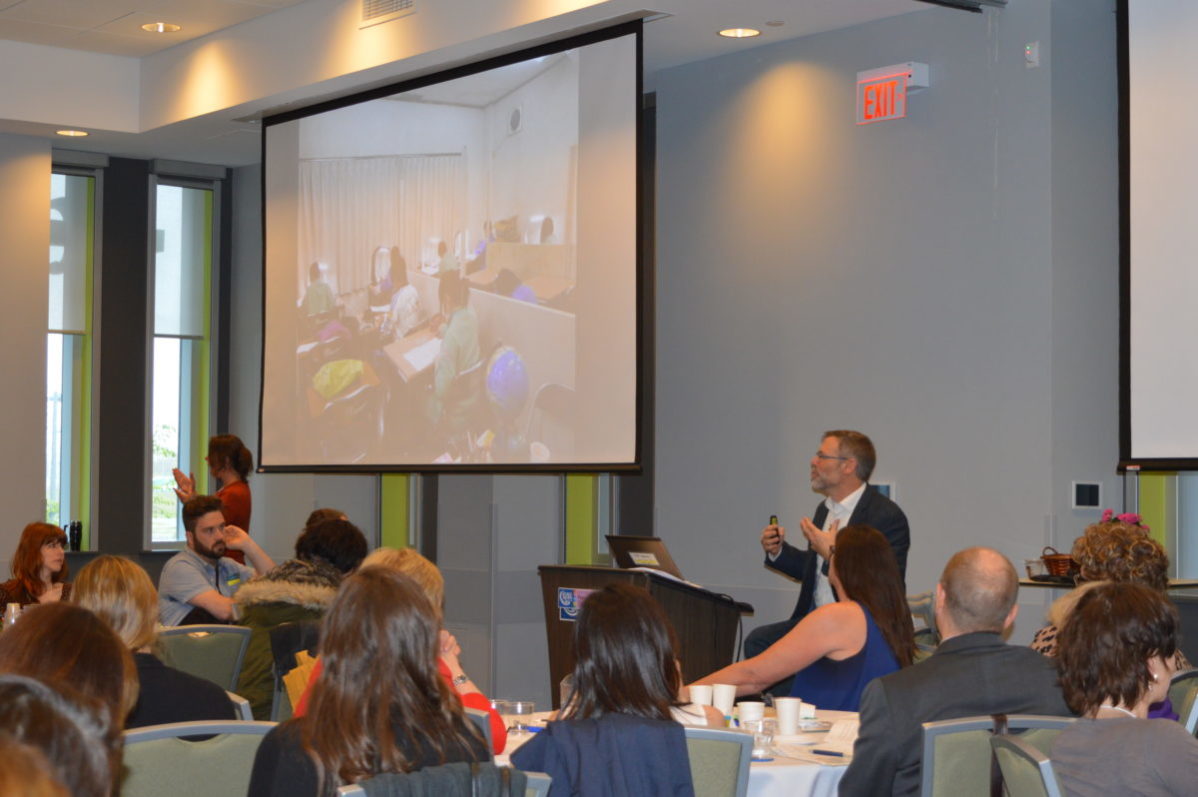College aims to open communication between staff, encourage student feedback in mental wellness programming
Mental health for students is being regarded as a crisis on campuses across Canada. But, at George Brown College, staff and students are working to create new solutions to this problem.
“There’s something really innovative happening at George Brown that is not at other colleges and universities,” said Tenniel Rock, manager of counselling and student well-being.
Rock is working to break the barriers between staff and students when it comes to the development of mental wellness programming. As a start, the college’s counselling team, Peerconnect and the healthy campus initiative have all been brought together under the student well-being banner.
There is also a concentration on bringing in more student feedback, and as such, the approach of the programming has shifted from a problem to solution-based focus.
Rock said students are telling her to help them with the problem, but not to see them as the problem and that she’s incorporating this feedback into counselling and student well-being’s approach.
“(Counsellors) really hear the complex issues, but it’s difficult for them because they help that student and then what?” she said. Rock is encouraging counsellors to take what they’re hearing and work with peer coaches to create better programming for students.
“The beauty of everyone coming together is recognizing that we’re going to be looking at mental health and wellness from a preventative perspective,” she said. “And there are multiple ways that we can do that, whether it’s a very informal conversation with a peer coach or someone being brought in crisis to the counselling centre.”
At George Brown’s 18th annual Mental Health Conference on May 5, the focus was on developing resilience for both staff and students.
The keynote speaker was Michael Ungar, a Canadian research chair on child, family and community resilience at Dalhousie University. For Ungar, thinking about resilience is essentially asking what people need to succeed when they face difficulty.
“When we start talking about resilience we shift the focus from talking about what goes wrong with people or disorders and problems, to the factors, the things that protect them that actually make it possible to do well when they’re stressed or exposed to problems,” he said.
One of Ungar’s research interests is how a person’s environment can influence their resiliency. He notes that having a supportive environment which includes having a sense of control and belonging are important ingredients towards developing resilience.
“It’s not really enough just to have a positive attitude,” Ungar said. “If you think about it you can have a positive attitude but if you don’t have enough money to go to school, you know only about one in 100 people are going to succeed magically.”
Also important is making sure that a student experiences social justice or fair treatment in their lives.
“If you aren’t experiencing that, find others who will advocate on your behalf, when you find an identity in your work, your social life, or community, you’re actually more likely to be able to stand stress, because that identity connects you to people,” he said.
One of the ways that George Brown’s counselling and student well-being department is trying to connect its programming with students is through its student well-being survey.
The survey is focused around how students are feeling, in terms of isolation, suicidal ideation and more. Rock said that it’s the first survey of its kind at the college.
With the survey and other means of engagement, Rock’s hope is to make all student well-being programming centralized around student voices from here out.
“This is an open invitation for folks to sit down at a table with me, if you’ve got something to say, if you’ve got an idea, let’s do this together,” Rock said. “I don’t see any reason why we can’t do things differently, and, frankly, on my watch we will.”


